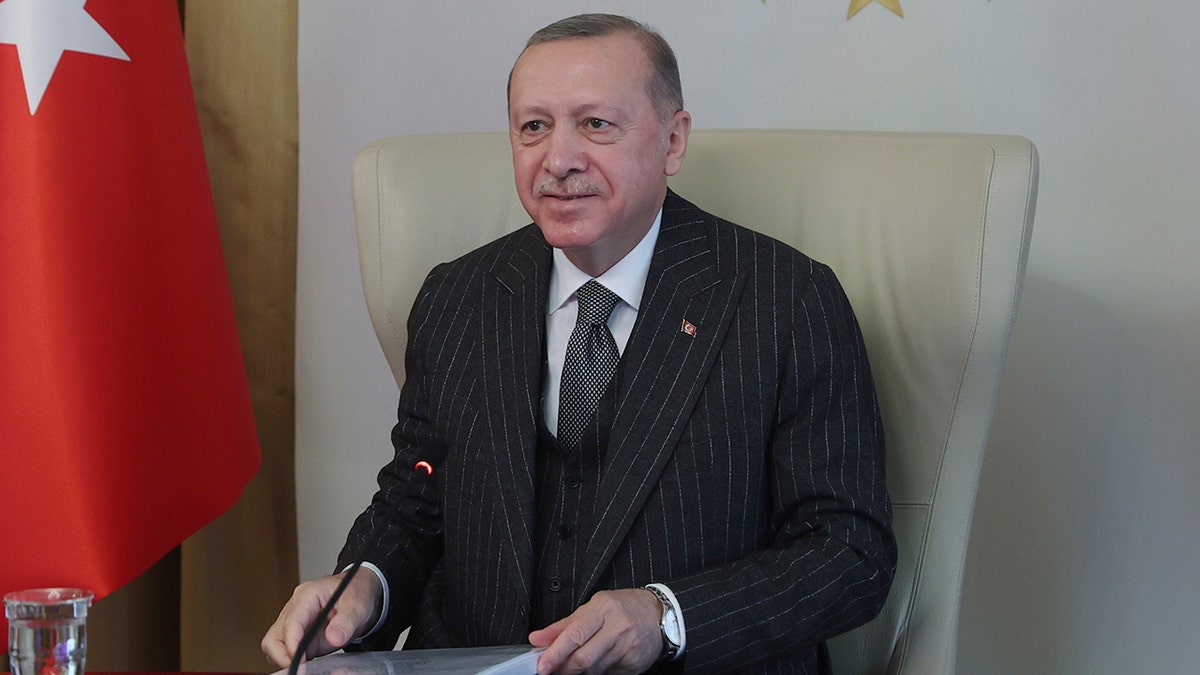Fox News Flash top headlines for March 22
Fox News Flash top headlines are here. Check out what's clicking on Foxnews.com.
After verbal jabs with Russia and China last week, President Biden criticized ally Turkey's withdrawal from a European convention on violence against women, adding to the diplomatic tensions facing the early days of Biden's presidency.
The criticism comes as Biden, since becoming president, has yet to speak with Turkish President Recep Tayyip Erdogan despite phone calls and bilateral meetings with at least 13 other world leaders, including Russian President Vladimir Putin and Chinese President Xi Jinping, according to a Fox News analysis.
Biden called Turkey's withdrawal from the Istanbul Convention "a disheartening step backward for the international movement to end violence against women globally."
Last week, Biden called Putin "a killer." Less than a day later, Chinese State Councilor Wang Yi told Secretary of State Antony Blinken "the United States does not have the qualification to say that it wants to speak to China from a position of strength," during the first face-to-face, high-level talks between the two countries since Biden entered the Oval Office.
Erdogan called Biden's "killer" comment "unacceptable."

Turkey President Recep Tayyip Erdogan speaks as he participates in a video conference with European Commission President Ursula von der Leyen and European Council President Charles Michel from an old Ottoman palace in Istanbul, Friday, March 19, 2021. (Turkish Presidency via AP, Pool) ((Turkish Presidency via AP, Pool))
Foreign policy observers told Fox News the U.S. will soon need to evaluate its relations with Turkey, one of its key partners in the Middle East.
Turkey strained its relations with America when the country made a deal with Russia to purchase its S-400 air defense systems in 2017. The U.S. responded by removing Turkey from the F-35 joint strike fighter program and activating the sanctions put in place by the Countering America's Adversaries through Sanctions Act (CAATSA).
AMERICANS WAIT FOR COVID-19 VACCINES AS US COMMITS MILLIONS OF DOSES FOR MEXICO, CANADA
Many Western allies have also raised concerns about human rights abuses in Turkey in recent years.
With Russia, Iran and China being the biggest adversaries to the U.S., a strained relation with Turkey over human rights abuses and military deals with Russia does not benefit U.S. interests, according to Soner Cagaptay, author of "Erdogan's Empire: Turkey and the Politics of the Middle East" and the director of the Turkish Research Program at the Washington Institute.
The leadership of each country is waiting for the other to blink, Cagaptay said. Turkey expects the U.S. to cut off its ties with the Kurdish YPG in Syria, while the U.S. wants Turkey to stop its military deals with Russia and respect human rights in a more comprehensive way.
Turkey shares borders with both Russia and Iran, making it a strong NATO ally to the U.S. However, Turkey also has strong relations with China and has not condemned its treatment of Uyghur Muslims, as opposed to the U.S. and many other Western allies calling it a genocide.
"Turkey cannot be alone against Russia. ... Nor can Turkey be alone in its neighborhood. Turkey is not a superpower," Cagaptay said. "Turkey is financially completely integrated into European economy and to the global financial system. I cannot see Erdogan walking away from Europe or the U.S. ... It is hard for me to see how the United States would let go of its relationships with the only country that borders two of the four countries of concern."
MOTHER IN ISTANBUL THROWS 4 CHILDREN OUT APARTMENT WINDOW TO SAVE THEM FROM FIRE, VIDEO SHOWS
Part of Biden's "America is back" rhetoric includes attention to human rights abuses across the globe. The Biden administration has already taken some measures against Saudi Arabia for the killing of Washington Post journalist Jamal Khashoggi by releasing the Office of the Director of National Intelligence report on Crown Prince Mohammed Bin Salman's involvement and pausing arms sales to Saudi Arabia.
Experts say the long wait for a call between Biden and Erdogan is to make a point. As both countries are waiting for a sign from each other to ease the relations, the sign the U.S. expects is either a solution on the S-400 air defense systems or a major step toward resolving human rights issues, Cagaptay explained.
Former U.S. ambassador to Turkey and Iraq James Jeffrey agreed that both countries will eventually find a middle ground since the U.S. needs Turkey as a partner in diplomatic and military platforms to counter China, Russia and Iran, even if it is one of the countries "whose internal situations do not meet [Biden's] democracy standards."
CLICK HERE TO GET THE FOX NEWS APP
Then again, Turkey has already appointed a new ambassador to Washington, which could be seen as an attempt for a fresh start. Ambassador Hasan Murat Mercan put on a brave face regarding U.S.-Turkey relations and suggested that none of the issues between the two countries could not be overcome during a partially off-the-record session with Turkish journalists in Washington last week.
Still, there is a chance that the relations could take a turn for worse.
"Particularly with Turkey and mercurial leader Erdogan, Biden could drive [him] into Putin's arms out of spite or necessity," Jeffrey said. "The whole purpose of Biden's ignoring Turkey ... is basically to make the point clear, 'We don't need you as much as you need us,' and it’s a mistaken strategy. Putin never plays that game."














































